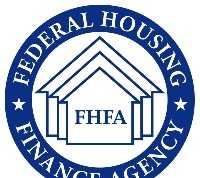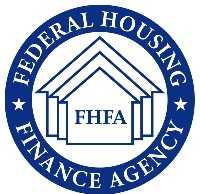Washington, DC – June 1, 2011 – (RealEstateRama) — Many say that housing led America into the economic downturn, thus housing will need to lead the way out. If true, the National Foundation for Credit Counseling (NFCC) May online poll provides little hope.
Compared to the identical questions posed in May 2010, the 2011 results show very little movement between the years, with each poll revealing that close to half of the respondents would never be able to save enough money for a down-payment on a home.
On the other end of the spectrum and identical to 2010, the 2011 category with the lowest response rate, 12 percent, represented those who indicated they would have no trouble coming up with a 20 percent down-payment.
“The 2011 results could be even worse than they appear at first glance,” said Gail Cunningham, spokesperson for the NFCC. “Since prices for homes are at historic lows, the necessary down-payment represents a lower dollar amount than would typically be necessary. Nonetheless, consumers still do not feel capable of meeting the requirements.”
The numbers suggest that consumers are reconciled to satisfying their housing needs through renting, even though in some markets it can be more affordable to buy a home than rent. While demand for rentals increased, so did the cost of renting.
Although renting has many advantages, it may not stimulate the economy as much as an uptick in the housing market world, as renters do not typically spend as much on home improvements, lawn equipment, appliances, or other areas which would lead to job growth.
Consumers’ inability to buy a home exacerbates the already distressed housing market and slows recovery. Neighborhoods with multiple homes for sale or in foreclosure create blight on the entire area, resulting in a decreased tax base for the community, not to mention the chaos experienced by the displaced families that have been forced to abandon their dream. The longer the neighborhoods go unoccupied, the more prone to crime and vandalism they become, diminishing the property values even further.
“Now is the time for consumers to examine their long-term goals as they relate to housing, and take the steps necessary to meet them,” continued Cunningham. “Renting may be the right answer for some people, but just because homeownership isn’t on the horizon at the moment doesn’t mean it never can be.”
If you need help defining your housing goals and constructing a plan to meet them, reach out to a trained and certified housing counselor through an NFCC Member Agency. To be automatically connected to the location closest to you, dial (800) 388-2227, or go online to www.DebtAdvice.org. For assistance in Spanish, call (800) 682-9832.
The May poll questions and results are below:
If I were to buy a home today, I would
- Have no trouble coming up with a 20 percent down-payment = 12% (2010 = 12%) Need a loan that allowed a much lower down-payment = 21% (2010 = 20%) Have to borrow the down-payment money regardless of how much is required = 17% (2010 = 18%)
- Never be able to save enough money for a down-payment = 50% (2010 = 49%)
- Note: The NFCC’s May Financial Literacy Opinion Index was conducted via the homepage of the NFCC Web site (www.DebtAdvice.org) from May 1 – 31, 2011 and was answered by 1,071 individuals.
The National Foundation for Credit Counseling (NFCC), founded in 1951, is the nation’s largest and longest serving national nonprofit credit counseling organization. The NFCC’s mission is to promote the national agenda for financially responsible behavior and build capacity for its Members to deliver the highest quality financial education and counseling services. NFCC Members annually help over three million consumers through close to 800 community-based offices nationwide. For free and affordable confidential advice through a reputable NFCC Member, call (800) 388-2227, (en Español (800) 682-9832) or visit www.nfcc.org. Visit us on Facebook at http://www.facebook.com/NFCCDebtAdvice and on Twitter at http://twitter.com/NFCCDebtAdvice.

















